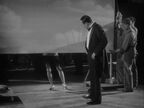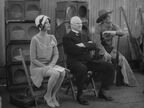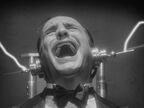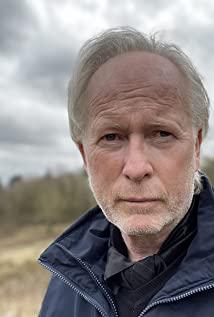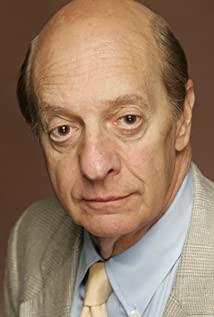In the opening picture-in-picture, the screen, the live band, and the audience form a triangular stable structure. In the middle, the subtitles of a silent film are used to cross the axis, and naturally turn to the crew behind the screen.
Forgot to take a picture
The male protagonist's thanks on stage, the scene where his nose is smashed by the wall when he came off the stage, and the scene in which the female protagonist mocks the silent film actors in the middle, all pay tribute to "Singing in the Rain", which also tells about the transition from silent films to sound films.
"Singing in the Rain" as a musical, this form itself was Hollywood's best show in the early days of talkies. At that time, dancers had a bigger stage to shine, and new stars "pushed waves from behind".
Musical films are usually hilarious, although there are the tragic West Side Story (based on Romeo and Juliet, no comedy) that mocks American racism in a playful tone; City", etc., but in the rhythm of the song and dance clips, our mood will also follow the swing.
"Singing in the Rain" is what I think is the greatest representative of the advantages of musicals. The smiles and dance steps that have been tempered repeatedly are the most touching truths in everyone's mind. Thank you Gene Kelly for the 40-degree fever of Singing in the Rain!
The following is the film "The Artist" with the same core. The characters are the same, the male protagonist is the king of silent films, the female protagonist works with sound; the female protagonist saves the male protagonist from danger; HE. The plot of this film is more like the expanded version of "Singing in the Rain". The hero's pride and persistence, unwilling to bow his head to the sound, is his supreme loyalty to the art he has always adhered to. This film focuses on the male protagonist's subjective perspective, and it is his character that casts his final demise; "Singing in the Rain" focuses on the objective perspective of the times, and it is difficult for the crew who are accustomed to shooting silent films to quickly integrate into the territory of sound films, causing Wang Er Not king. At the end of the film, the author also gave a solution for the male protagonist-going to singing and dancing, jazz will be sung all over the streets, and it is also an echo of the male protagonist's tap dance at the beginning of the film. (Alas, the greatest actors of the silent era!)
In terms of photography, given my lackluster knowledge of photography skills, the photography of this film is impeccable. The theater scene in the first paragraph shows the arrangement of large indoor scenes; there are many family indoor scenes in the middle, the male protagonist's big house, the male protagonist's burrow, the female protagonist's big villa, the Hollywood studio, etc., you can see different emotions and moods, For example, the oblique composition appears when the male protagonist is manic; the last song and dance scene is also interesting. The most outstanding thing about this film is that the director made the element of sound "live". During the silent film period, the theater could only have live music to express the general trend of the mood, and could not achieve particularly detailed onomatopoeia. There may also be a culture shock to ?? and ?? in the film. In this film in 2011, the director used the soundtrack to simulate the silent film to the extreme. When you have entered the film, he uses the sound to open the fourth wall, and the audience is not less surprised than the male protagonist. The final song and dance is the reconciliation between the male protagonist and the sound and the audience, so that we can hear the real dialogue.
finally. At a time when technology and equipment are constantly innovating, actors are less and less involved in movies, and the performances they need to contribute can more and more be recovered through other conditions. Why are we still commemorating the great silent film era? It is they who are constantly exploring the possibilities of movies with simple equipment and capture the hearts of audiences with exquisite performance design, but it is these audiences who abandon them after they have sound. ಥ_ಥ
View more about The Artist reviews



